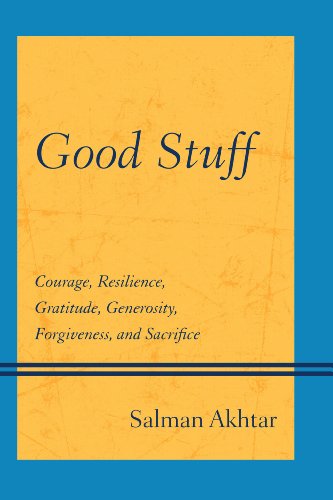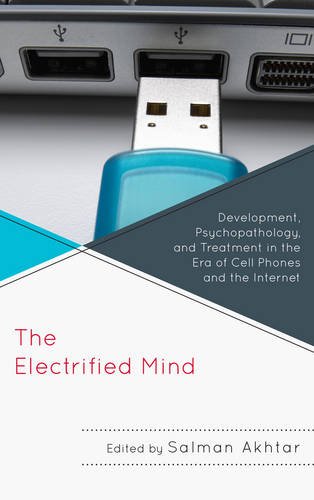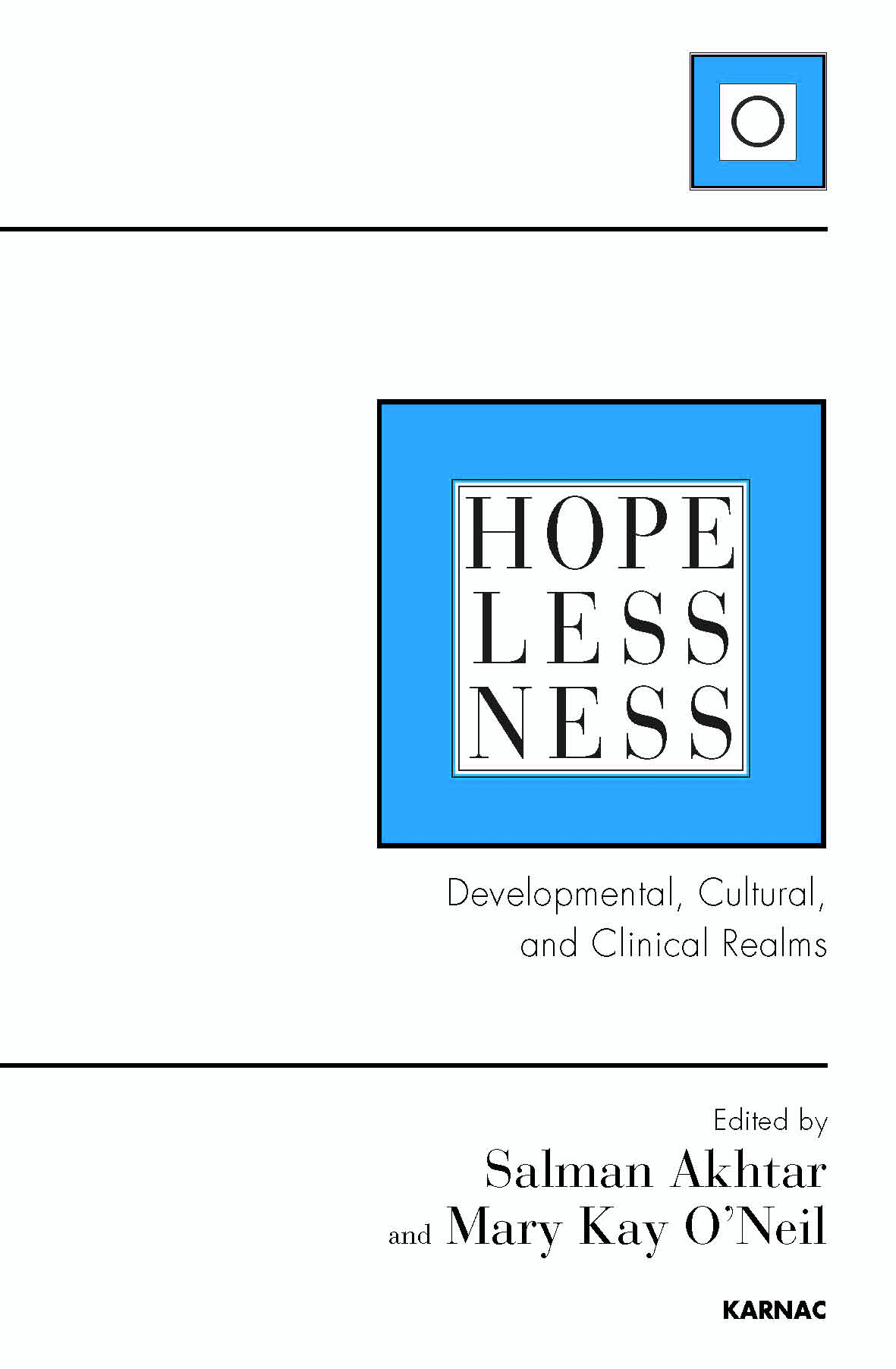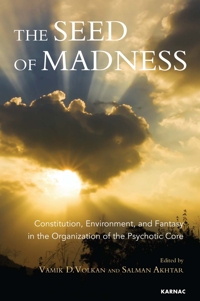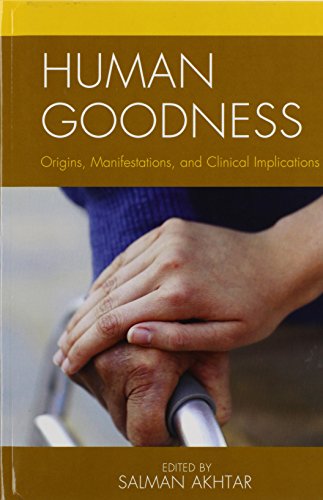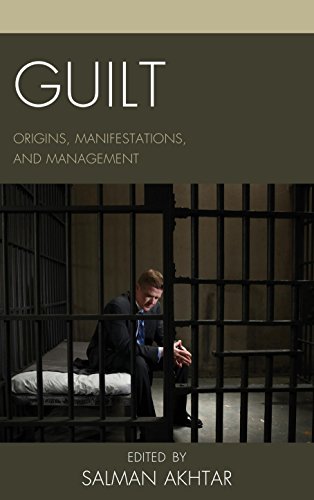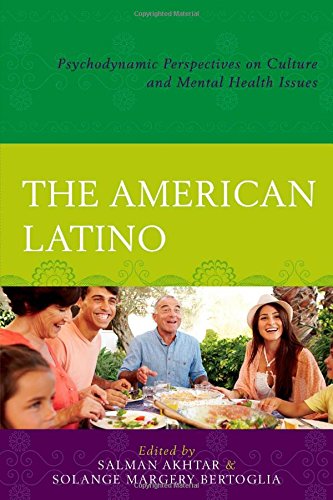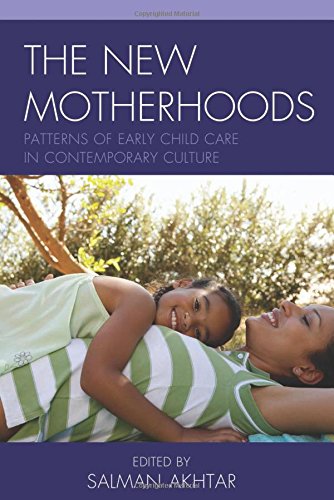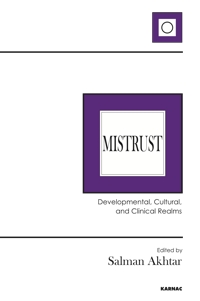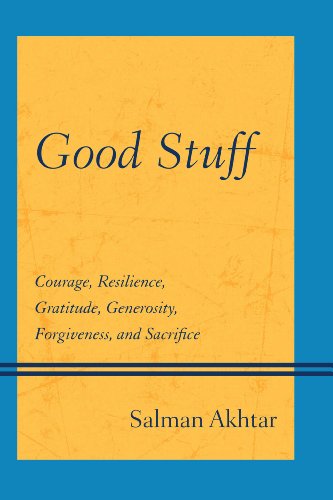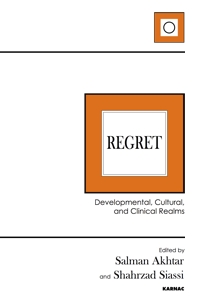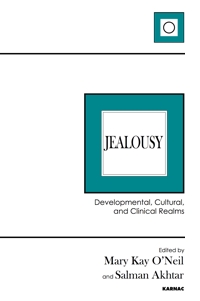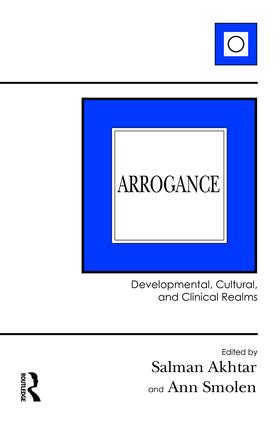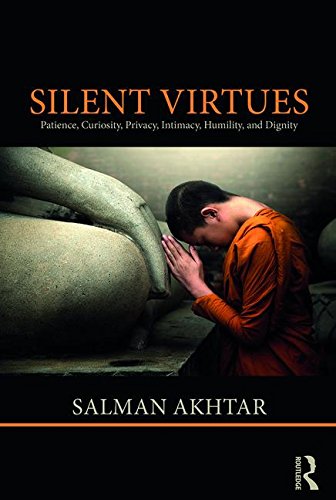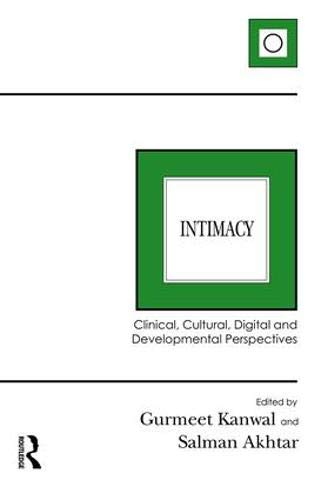Salman Akhtar
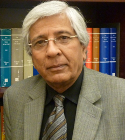
Salman Akhtar, MD, is professor of psychiatry at Jefferson Medical College and a training and supervising analyst at the Psychoanalytic Center of Philadelphia. He has served on the editorial boards of the International Journal of Psychoanalysis and the Journal of the American Psychoanalytic Association. His more than 450 publications include 120 books, of which the following twenty-three are solo-authored – Broken Structures (1992), Quest for Answers (1995), Inner Torment (1999), Immigration and Identity (1999), New Clinical Realms (2003), Objects of Our Desire (2005), Regarding Others (2007), Turning Points in Dynamic Psychotherapy (2009), The Damaged Core (2009), Comprehensive Dictionary of Psychoanalysis (2009), Immigration and Acculturation (2011), Matters of Life and Death (2011), Psychoanalytic Listening (2013), Good Stuff (2013), Sources of Suffering (2014), No Holds Barred (2016), A Web of Sorrow (2017), Mind, Culture, and Global Unrest (2018), Silent Virtues (2019), Tales of Transformation (2022), In Leaps and Bounds (2022), and In Short (2024) – as well as sixty-nine edited or coedited volumes in psychiatry and psychoanalysis. Dr. Akhtar has delivered many prestigious addresses and lectures including, most significantly, the inaugural address at the first IPA-Asia Congress in Beijing, China (2010). Dr. Akhtar is the recipient of the Journal of the American Psychoanalytic Association’s Best Paper of the Year Award (1995), the Margaret Mahler Literature Prize (1996), the American Society of Psychoanalytic Physicians’ Sigmund Freud Award (2000), the American College of Psychoanalysts’ Laughlin Award (2003), the American Psychoanalytic Association’s Edith Sabshin Award (2000), Columbia University’s Robert Liebert Award for Distinguished Contributions to Applied Psychoanalysis (2004), the American Psychiatric Association’s Kun Po Soo Award (2004), the Irma Bland Award for being the Outstanding Teacher of Psychiatric Residents in the country (2005), and the Nancy Roeske Award (2012). He received the Sigourney Award (2013), which is the most prestigious honor in the field of psychoanalysis. Dr. Akhtar is an internationally sought speaker and teacher, and his books have been translated in many languages, including German, Turkish, and Romanian. His interests are wide and he has served as the film review editor for the International Journal of Psychoanalysis, and is currently serving as the book review editor for the International Journal of Applied Psychoanalytic Studies. He has published eighteen collections of poetry and serves as a scholar-in-residence at the Inter-Act Theatre Company in Philadelphia. His Selected Papers (Vols I–X) were recently published and released at a festive event held at the Freud House & Museum in London.
Fear: A Dark Shadow Across Our Life Span
Beginning with Freud’s celebrated case of Little Hans, psychoanalysts and psychotherapists have been intrigued with the topic of fear. Eclipsed in theoretical writings by the term ‘anxiety’, fear... (more)
Sources of Suffering: Fear, Greed, Guilt, Deception, Betrayal, and Revenge
This concise and well-written book deals with six important roots of human anguish. It divides the six areas into those primarily affecting the individual and those primarily affecting others around... (more)
Guilt: Origins, Manifestations, and Management
In this elegantly written book, eight distinguished psychoanalysts address the ubiquitous phenomenon of guilt. They describe the childhood experiences that form the bedrock of this emotion and... (more)
Good Stuff: Generosity, Resilience, Humility, Gratitude, Forgiveness, and Sacrifice
Good Stuff is divided into two main parts; Part I addresses Positive Attributes and Part II, Positive Actions. The former contains chapters on Courage, Resilience, and Gratitude. The latter contains... (more)
Cultural Zoo: Animals in the Human Mind and its Sublimation
‘This book is a major contribution to culture and to the psychoanalytic literature. The authors explore how animals, both wild and domesticated, have powerful symbolic meanings in our psyches,... (more)
Mental Zoo: Animals in the Human Mind and its Pathology
‘Salman Akhtar and Vamik Volkan’s dynamic book, Mental Zoo, takes the reader on a panoramic tour illuminating the rich world of animals in human experience. Here Freud’s rats, wolves, and horses join... (more)
The Electrified Mind: Development, Psychopathology, and Treatment in the Era of Cell Phones and the Internet
The Electrified Mind helps therapists understand and empathize with patients who rely heavily upon cell phones and the internet for the purposes of self-expression as well as for defensive avoidance... (more)
Revenge: Narcissistic Injury, Rage, and Retaliation
Revenge: Narcissistic Injury, Rage, and Retaliation addresses the ubiquitous human wish to take revenge and settle scores. Featuring the contributions of eleven distinguished mental health... (more)
Shame: Developmental, Cultural, and Clinical Realms
A late-comer to psychoanalytic theorizing, 'shame' results from a disjunction between the ego and the ego-ideal. A complex psychosocial experience, it is comprised of a painful exposure of one’s... (more)
Greed: Developmental, Cultural, and Clinical Realms
Though references to it are scattered in the writings of Klein and Winnicott, the topic of greed has drawn meagre attention from contemporary psychoanalysts. This book fills that lacuna. Noting that... (more)
Hopelessness: Developmental, Cultural, and Clinical Realms
Hope is the most reliable sustainer of life. It offers the promise of something good in the future, contributes to resilience, and keeps one going. However, there are circumstances when hope dries... (more)
The Seed of Madness: Constitution, Environment, and Fantasy in the Organization of the Psychotic Core
More and more individuals with ego defects, severe object relations conflicts, affective turbulence, and unassimilated contradictions are seeking help from psychoanalysts and psychotherapists.... (more)
Human Goodness: Origins, Manifestations, and Clinical Implications
Human Goodness: Origins, Manifestations, and Clinical Implications focuses on the positive attributes that exist in each human heart. In this volume eight distinguished clinicians elucidate the... (more)
Guilt: Origins, Manifestations, and Management
Guilt: Origins, Manifestations, and Management is replete with clinical pearls and highly useful tips for the management of patients driven by feelings of guilt and remorse. Eight distinguished... (more)
The American Latino: Psychodynamic Perspectives on Culture and Mental Health Issues
The American Latino: Psychodynamic Perspectives on Culture and Mental Health Issues focuses on the culture of the Hispanic population in the United States and replaces stereotypes with portrayals... (more)
Immigration and Acculturation: Mourning, Adaptation, and the Next Generation
This book provides clinical strategies for working with immigrant and ethnically diverse patients and their offspring while drawing observations from the humanities to reveal truths about the... (more)
The New Motherhoods: Patterns of Early Child Care in Contemporary Culture
The New Motherhoods: Patterns of Early Child Care in Contemporary Culture offers innovative perspectives in psychotherapy that accommodate emerging pathways to parenthood, changing roles of mothers,... (more)
Mistrust: Developmental, Cultural, and Clinical Realms
Humans are weak. Lacking the claws and thick skins of other animals, we are forced to rely on members of our own species to survive and flourish in the world. The fact that the human infant is born... (more)
Bereavement: Personal Experiences and Clinical Reflections
This is a book about death, loss, grief and mourning, but with an unusual twist. It is different in that it explores specific kinds of deaths encountered within families and households, rather than... (more)
Good Stuff: Courage, Resilience, Gratitude, Generosity, Forgiveness, and Sacrifice
Good Stuff is divided into two main parts; Part I addresses Positive Attributes and Part II, Positive Actions. The former contains chapters on Courage, Resilience, and Gratitude. The latter contains... (more)
A Web of Sorrow: Mistrust, Jealousy, Lovelessness, Shamelessness, Regret, Hopelessness
Bringing together the experiences of mistrust, jealousy, lack of love, shamelessness, regret, and despair, this far-reaching book elucidates human sorrow in striking sociocultural and clinical... (more)
Regret: Developmental, Cultural, and Clinical Realms
Missed opportunities, unfulfilled dreams, and broken promises are the stuff of everyday life and so is regret, the emotion that accompanies them. Unlike remorse which is consequent upon the... (more)
Jealousy: Developmental, Cultural, and Clinical Realms
Jealousy is a human feeling experienced by everyone in varying intensities, at different times and phases of growth. Frequently confused, jealousy and envy are often intertwined. Even within the... (more)
The Language of Emotions: Developmental, Psychopathology, and Technique
This book is about affect-its origins, development and uses-and how it is viewed in a clinical setting. The authors track and further develop the recent major changes in the understanding of affect.... (more)
Real and Imaginary Fathers: Development, Transference, and Healing
In this work, Salman Akhtar looks at how many fathers unconsciously, and sometimes quite consciously, attempt to revise their own traumatized childhood by providing their children with possibilities... (more)
Arrogance: Developmental, Cultural, and Clinical Realms
Arrogance as a specific constellation of affect, fantasy, and behavior has received little attention in psychoanalysis. This is striking in light of the enormous amount of literature accumulated on... (more)
Silent Virtues: Patience, Curiosity, Privacy, Intimacy, Humility, and Dignity
Silent Virtues addresses six areas of mental functioning, namely, patience, curiosity, privacy, intimacy, humility, and dignity. Each of the areas is elucidated with the help of clinical, literary,... (more)
Intimacy: Clinical, Cultural, Digital and Developmental Perspectives
Intimacy: Clinical, Cultural, Digital and Developmental Perspectives applies a contemporary, psychoanalytic lens to the many facets of intimacy between people, from romantic and sexual relationships,... (more)
The Colors of Childhood: Separation-Individuation Across Cultural, Racial and Ethnic Diversity
Starting from a separation-individuation perspective, this text discusses cultural issues in child rearing and clinical practice. Included are chapters on African-American, Japanese, and South... (more)
Does God Help?: Developmental and Clinical Aspects of Religious Belief
Can psychoanalysis lead us toward understanding the roots and nature of religious belief? In this text, five classical psychoanalysts representing five different religious faiths share their... (more)





